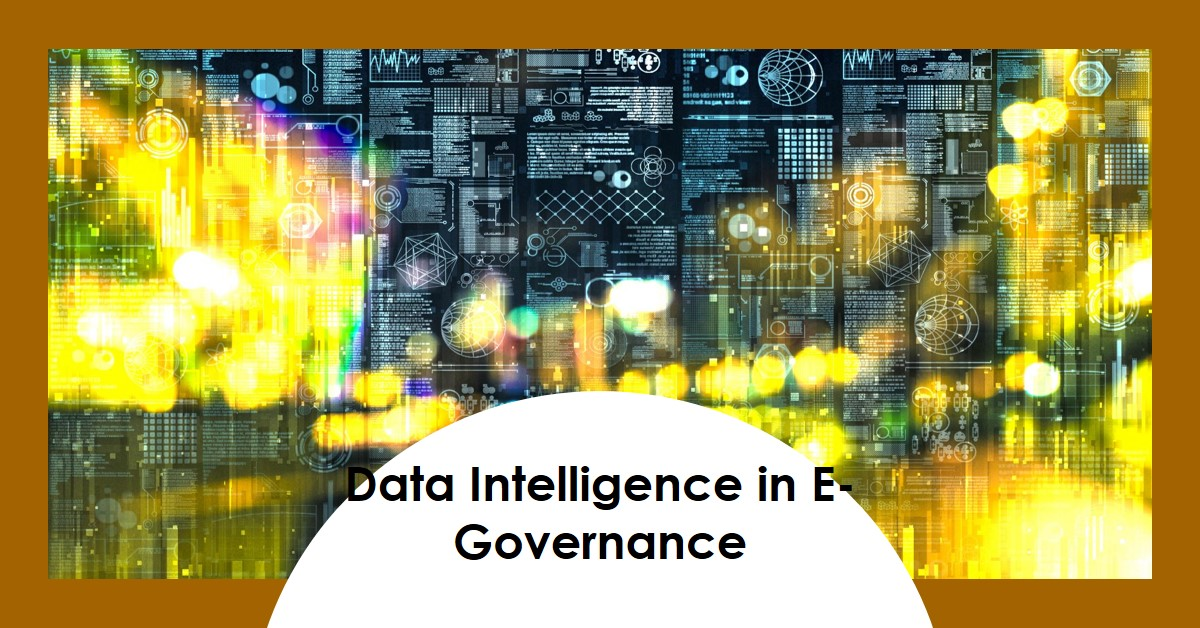

Introduction
In the digital age, the concept of governance has transformed, transcending traditional mechanisms to adopt more efficient, transparent, and participatory processes through e-governance. Central to this transformation is data intelligence, which has become a cornerstone in enhancing governmental operations and public services. In 2024, we are witnessing a paradigm shift in how governments utilize data intelligence to foster more effective and transparent governance.
The Role of Data Intelligence in Modern Governance
Data intelligence refers to the process of collecting, analyzing, and using data to make informed decisions. In the context of governance, it equips government officials with the insights needed to streamline operations, improve public services, and ensure policy decisions are evidence-based. The integration of data intelligence in governance processes has led to:
- Enhanced Decision-making: Governments are leveraging big data analytics to process vast amounts of information, enabling them to make better-informed decisions quickly.
- Improved Public Services: Through predictive analytics, governments can anticipate public needs and allocate resources more efficiently, leading to enhanced service delivery.
- Increased Transparency: Data intelligence tools facilitate greater transparency by making government operations more visible and understandable to the public, thereby building trust.
- Citizen Engagement: With the advent of open data initiatives, citizens are empowered to analyze public data, leading to increased civic engagement and collaboration in governance processes.
Impact and Statistics
The impact of data intelligence on governance is profound, with tangible benefits observed across various sectors. For instance, in healthcare, data analytics has been instrumental in improving patient care and managing public health crises. A study by the McKinsey Global Institute highlighted that data-driven decision-making in the public sector could potentially unlock value equivalent to 1-1.5% of GDP, indicating the significant economic impact of data intelligence in governance.
Furthermore, the adoption of data intelligence in public administration has led to cost savings and efficiency gains. A report by the IBM Center for The Business of Government noted that data-driven government initiatives could reduce operational costs by up to 20%, underscoring the financial benefits of integrating data intelligence in governance.
Case Studies of Success
Several countries have set benchmarks in utilizing data intelligence for governance. Estonia, for instance, has been a pioneer in e-governance, with its X-Road system enabling secure data exchange between government databases, thus enhancing service efficiency and transparency. Similarly, Singapore’s Smart Nation initiative employs data analytics extensively to improve urban living, optimize transportation, and promote sustainable development.
The Role of p99soft in Enhancing Data Intelligence for Governance
p99soft, with its expertise in data intelligence cloud for B2B, stands at the forefront of this transformation. By offering robust data analytics and cloud solutions, p99soft enables government agencies to harness the power of data intelligence, facilitating more efficient and transparent governance processes.
The Evolution of E-Governance through Data Intelligence
The journey towards effective and transparent governance through data intelligence has been evolutionary. Initially, e-governance was about digitizing existing government services. However, in 2024, it has transcended to a more strategic use of data intelligence, where data is not just an enabler but a driver of policy and decision-making. This shift has led to the development of smart governance models, where predictive analytics and AI play a crucial role in shaping future-oriented policies and services.
Advanced Analytics in Government Decision-making
Governments are now employing advanced analytics, including machine learning and AI, to derive deeper insights from data. These technologies enable the identification of patterns and trends that were previously unnoticed, leading to more accurate and anticipatory governance models. For example, in urban planning, AI-driven simulations are used to predict the impact of infrastructural changes on traffic patterns and environmental conditions, helping planners to make more informed decisions.
Cybersecurity and Data Protection
With the increased reliance on data intelligence, cybersecurity and data protection have become paramount in e-governance. Governments are investing heavily in securing their digital infrastructure and safeguarding sensitive data against cyber threats. The implementation of robust data governance frameworks ensures that data is not only used responsibly but also protected from unauthorized access, thereby maintaining public trust.
Integration of IoT and Big Data in Governance
The Internet of Things (IoT) and big data are playing pivotal roles in enhancing e-governance. By integrating IoT devices and sensors, governments can collect real-time data on a variety of factors, from traffic conditions to environmental monitoring. When combined with big data analytics, this information can lead to more dynamic and responsive governance, enabling authorities to respond to changes and emergencies more swiftly.
p99soft’s Innovative Solutions
In this evolving landscape, p99soft offers innovative data intelligence solutions tailored for government needs. Their data intelligence cloud for B2B not only facilitates the efficient processing and analysis of large data sets but also ensures high levels of security and compliance, addressing the critical needs of data protection and cybersecurity in e-governance.
The Global Impact and Future Trends
Globally, the adoption of data intelligence in governance is creating more inclusive, responsive, and transparent governmental systems. Countries are learning from each other, adopting best practices, and adapting technologies to fit their unique governance contexts. As we look towards the future, the integration of AI, machine learning, and IoT within governance frameworks is expected to become more pervasive, leading to smarter and more citizen-centric governance models.
In this dynamic environment, the question is not just how data intelligence can improve governance but how it can transform the relationship between governments and citizens, fostering a more participative, transparent, and responsive governance ecosystem.
FAQs
1. What is data intelligence in the context of e-governance? Data intelligence in e-governance refers to the use of data analytics and related technologies to enhance decision-making, improve public services, increase transparency, and promote citizen engagement in governance.
2. How does data intelligence improve public service delivery? Data intelligence improves public service delivery by enabling governments to analyze large volumes of data, predict public needs, and optimize resource allocation, thereby enhancing the efficiency and quality of services offered to citizens.
3. Can data intelligence in governance lead to better transparency? Yes, data intelligence can significantly enhance transparency in governance by making government operations more visible and accessible to the public, thereby fostering trust and accountability.
4. How does p99soft contribute to the enhancement of e-governance through data intelligence? p99soft contributes by providing a data intelligence cloud for B2B, which helps government agencies to process and analyze large datasets effectively, thus enhancing decision-making and service delivery in governance.
Conclusion
In conclusion, data intelligence is revolutionizing the landscape of governance by enabling more effective, efficient, and transparent processes. With the power to analyze and utilize vast amounts of data, governments can improve public service delivery, foster greater transparency, and engage citizens more actively in governance processes. Companies like p99soft are pivotal in driving this transformation, offering advanced solutions that empower governments to leverage the full potential of data intelligence. As we move forward, the role of data intelligence in governance will only grow, leading us to ask: How will further advancements in data intelligence shape the future of governance?

